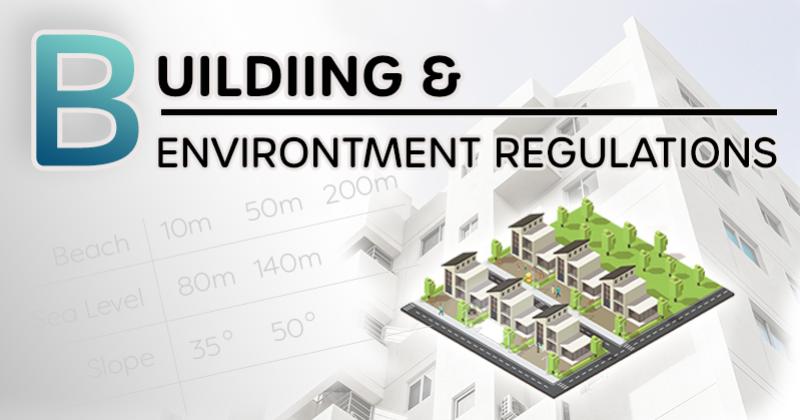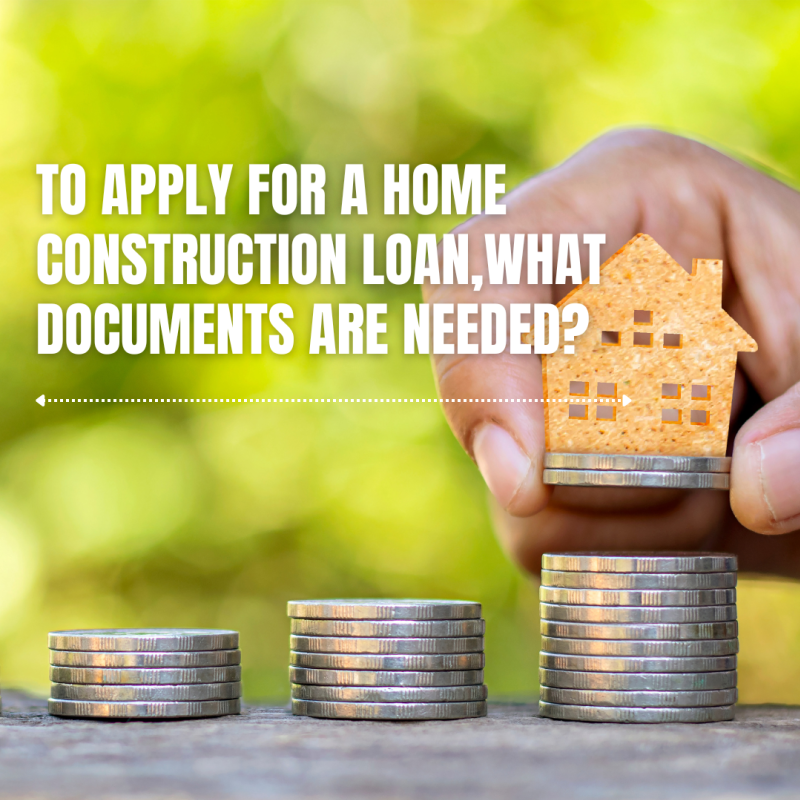
7 Tips For Home Sellers In 2023
How to sell a house to sell quickly, update 2023
7 Tips For Home Sellers In 2023
For real estate investors or those looking to sell their property, this may be a golden opportunity in the Koh Samui market. This is due to temporary residency of some foreign nationals who wish to move their base due to the ongoing conflict between Russia and Ukraine. Additionally, Chinese nationals who have recently opened up after a long lockdown may be interested. Today, The Property Center has some great techniques to help you sell your home or property quickly, as you had hoped for.
1.Set an appropriate price
Price is a crucial factor in making real estate, whether it's a house, townhouse/townhome, condo, or land, sell quickly. Therefore, setting the selling price is quite important and is the first point to consider. The selling price must take into account various factors, such as the appraisal price from the Treasury Department, the appraisal price from independent organizations or financial institutions, as well as the market price or actual transaction price in that location.
2.Make the product interesting
Even though people are more cautious with their spending, there are still many potential buyers looking to purchase real estate, especially through online channels. To sell effectively, it is important to make the property interesting by adding value through renovations or updates to make it more appealing for buyers who are looking to work from home. This could include incorporating flexible furniture or showcasing the property's potential for a home office. Additionally, using attractive photos and providing comprehensive information about the property can help grab potential buyers' attention.
3.Posting a residential property for sale
There are numerous options available for those who wish to sell their real estate properties, both those that require payment and those that do not. In the case of an owner selling their own property, they can take various pictures of the house from different angles and prepare important basic information, such as the location, the size of the property, and the public utility systems nearby. Then they can post the information and photos on various platforms.
Here are some recommended areas for posting a property for sale:
The advantage of real estate buying and selling websites is that these websites have information to attract potential buyers continuously. There is a greater chance for customers to see houses or condos that are for sale.
Facebook groups related to real estate are also a popular online platform for posting advertisements for residential properties for sale, but it is necessary to inquire about the rules and regulations of the group before posting.
Putting up a sign in front of the house and in nearby areas is another offline method that should not be overlooked. This helps increase opportunities for interested parties, especially in one's own neighborhood. However, don't forget to make a sign with clear contact information.
4.Check the expenses for which the seller is liable
In real estate transactions, there are expenses that the buyer and seller need to agree upon who will be responsible for paying. If there is an agreement reached before the sale, it can help make the transaction smoother and more organized. The expenses typically include the following:
Transfer fee: The transfer fee is usually 2% of the assessed value of the property and includes land and buildings. The cost is generally split equally between the buyer and the seller. However, in cases where the seller is an individual who is not willing to reduce the home price, the seller may agree to pay the entire transfer fee, or other agreements may be made between the buyer and the seller.
Specific business tax: The specific business tax is generally a cost borne by the seller and is calculated at 3.3% of the sale price. The seller must have owned the property for no more than 5 years. However, if the seller has owned the property for more than 5 years or has had his or her name on the house registration for more than 1 year, the specific business tax will not apply. Instead, the seller will need to pay a stamp duty.
Stamp duty: Stamp duty is generally an expense for the seller, calculated as 0.5% of the sales price, but not less than the appraised value of the land. If the appraised value is lower than the sales price, the stamp duty will be calculated based on the appraised value. However, if the seller is subject to paying the specific business tax, they will not have to pay stamp duty.
Personal income tax: In cases where the seller is an individual, they must pay personal income tax as they have earned income from the transaction. The personal income tax is calculated using a progressive rate system and the amount of tax depends on the method used and the number of years of ownership. For example, if the property was acquired through purchase and has been held for a long time, a high amount of transfer tax will be due, taking into account the appraised value of the land and buildings according to the Department of Lands.
5.Contracts must not be missed to prevent disadvantages
A sales contract is a document of great importance in buying and selling a house, so every detail must be carefully considered. A good contract makes both the buyer and the seller feel comfortable. A good contract should contain important information such as:
In terms of size and price of the transaction, it is important to verify that the size of the land, the area of the house, and the price agreed upon in the contract for buying and selling are accurate. The contract (Form T.D.13) must include a verification of the accurate price of the house and the land title deed number.
The date of the property transfer appointment must be specified in the contract for buying and selling. Sufficient time should be allocated for loan application and home inspection. If there is no specified date for property transfer in the contract, the contract may become null and void.
Responsibility for expenses must be considered. There are various costs associated with buying and selling a house such as transfer fees and taxes, which may become problematic if the buyer and seller do not agree on who is responsible for which expenses. Therefore, it is important to clearly state in the contract who will be responsible for which expenses.
Penalty for breach of contract: If the seller is late in delivering the house or cancels the contract without the buyer violating any terms, the buyer has the right to charge a daily penalty rate of not less than 0.01% but not exceeding 10% of the purchase price. The penalty rate should be clearly specified in the contract.
Both the seller and the buyer must ensure that they receive fair treatment in every aspect of the contract, such as contract cancellation, deposit refund, and home warranty. Additional terms and conditions regarding the purchase agreement will be specified at the end of the contract. Please read it thoroughly before signing the agreement.
6.Work with a proactive realtor
If you do not have knowledge and experience in selling, as well as in areas such as law, finance, government procedures, selling real estate can be difficult and complex. It is recommended to use the services of a real estate agent, an important assistant who will help with the sale starting from:
Providing advice on preparing the house before announcing the sale, such as decoration and pricing. In the case of a second-hand house, the agent can inspect for defects, estimate the value of the house, and provide advice to improve and help sell the house easily at a good price.
Marketing, finding customers, contacting them, and carrying out various operations, including taking customers to view the house and closing the sale.
Preparing the sales contract, notifying the owner of the house to prepare various documents, and helping to facilitate the buying and selling and transfer of ownership.
As for the agent's fee, it is generally 3% of the sale price, or it may be negotiated to be lower if the house to be sold has a very high price. The agent will collect the fee after the sale contract is successfully signed.
7.Pay attention to cleanliness
Whether during this period of COVID-19 outbreak or not, one important factor that should not be overlooked is cleanliness. Before selling a house or condominium, it is important to clean the property thoroughly before the buyer moves in. This can benefit the sale, as a clean house or condominium can attract and impress potential buyers or renters from the very first glance.
All of these are 7 good techniques to make selling a house easier, even in this economic downturn. There are still positive signs of increased demand for real estate, and it is an opportunity for sellers to use these techniques to win over potential buyers.
If any homeowners are not available or do not have the time and would like us to manage these matters on their behalf, we have customers contacting us every day looking for other properties, and you can entrust us to sell your property for you. Let the professionals handle the work while you wait for the sale. The Property Center welcomes all homeowners, and we have a team that posts on various online media and creates ads in social and marketing platforms on your behalf. These services are free of charge, and we only charge a commission of 3-5% for our services. Please contact us promptly.
Thank you information from: https://www.ddproperty.com/%E0%B8%84%E0%B8%B9%E0%B9%88%E0%B8%A1%E0%B8%B7%E0%B8%AD%E0%B8%8B%E0%B8%B7%E0%B9%89%E0%B8%AD%E0%B8%82%E0%B8%B2%E0%B8%A2/7-%E0%B9%80%E0%B8%97%E0%B8%84%E0%B8%99%E0%B8%B4%E0%B8%84-%E0%B8%82%E0%B8%B2%E0%B8%A2%E0%B8%9A%E0%B9%89%E0%B8%B2%E0%B8%99-%E0%B8%AD%E0%B8%AD%E0%B8%81%E0%B8%87%E0%B9%88%E0%B8%B2%E0%B8%A2-28142














